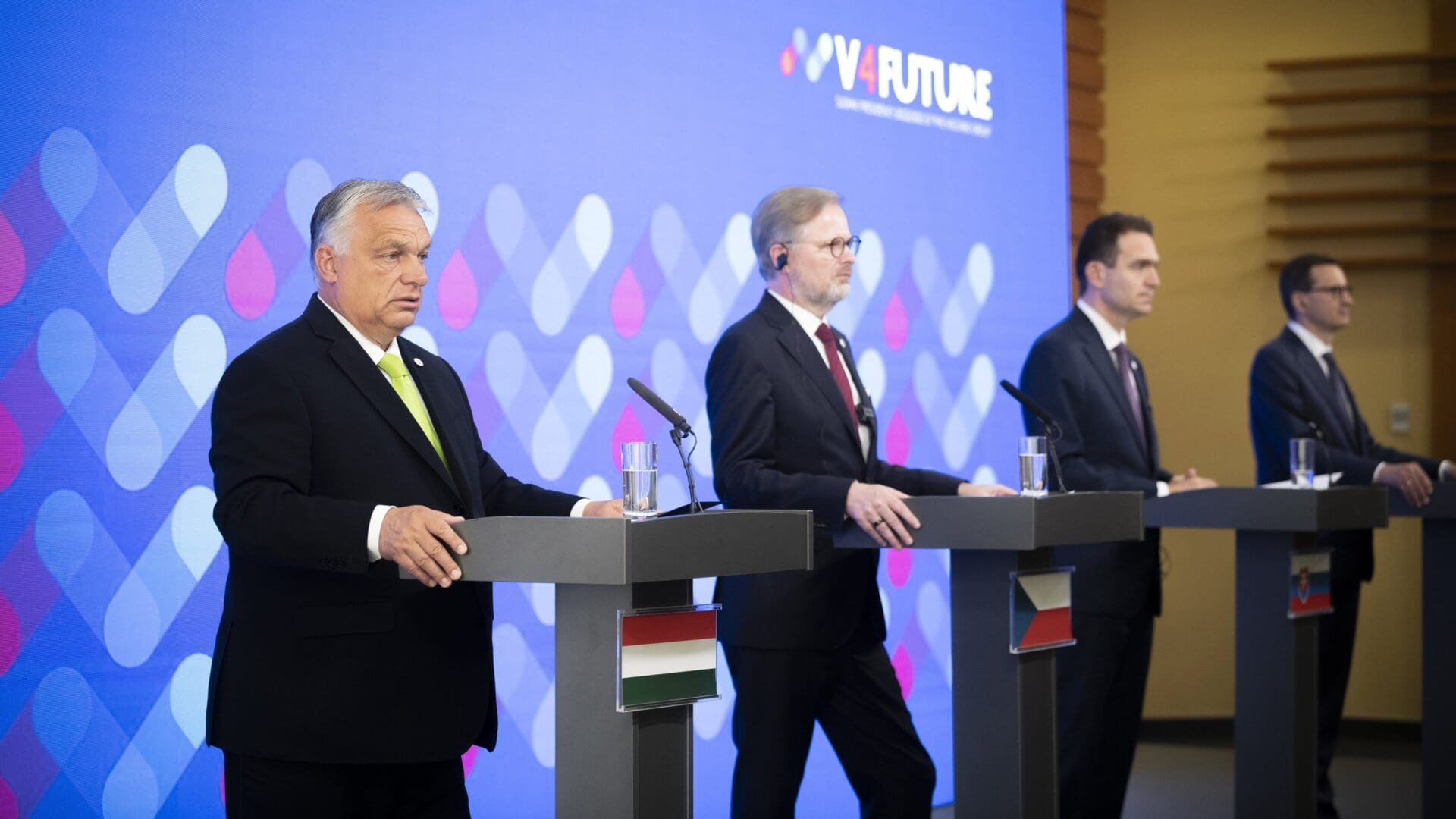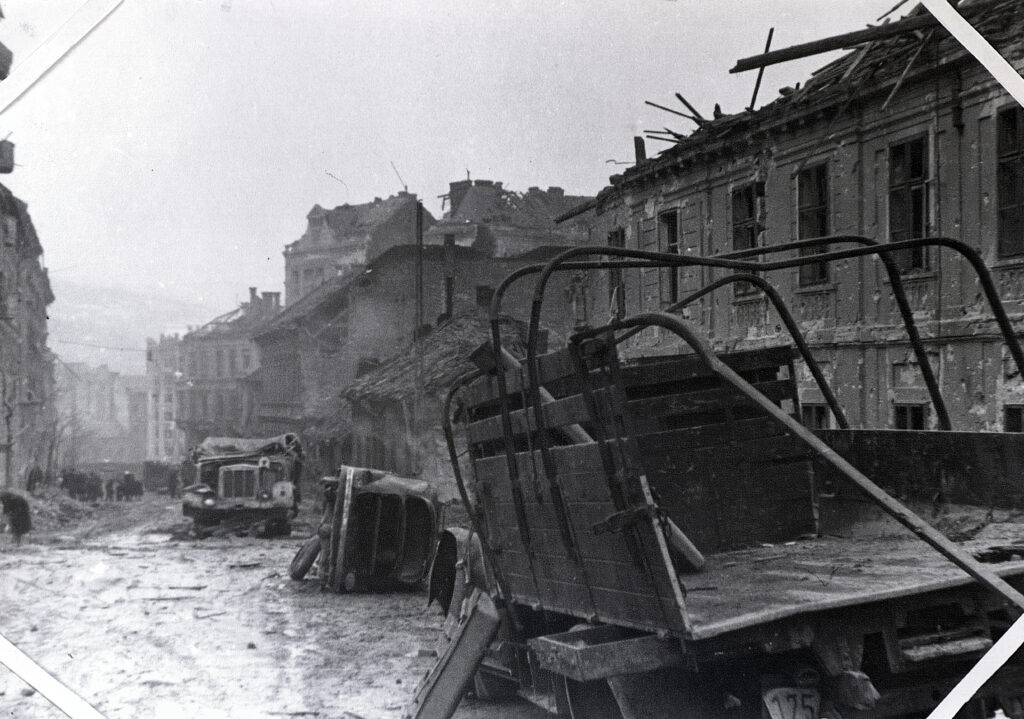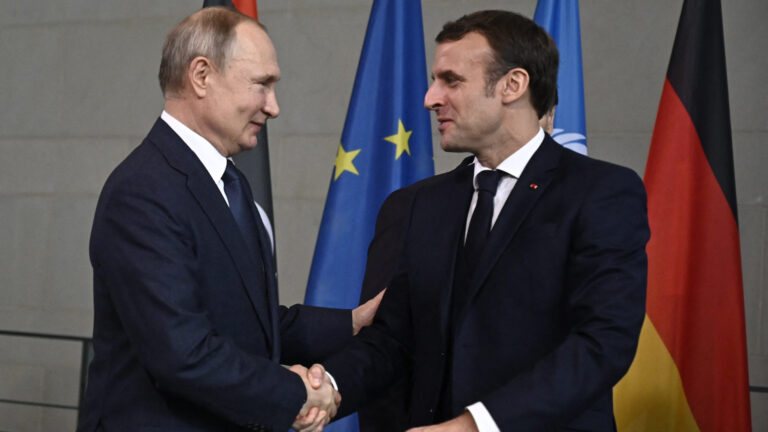The Visegrád Four share a common position on illegal migration, as concluded vy the Heads of Government of Hungary, Poland, the Czech Republic and Slovakia at the V4 summit on 26 June. Budapest and Warsaw also took this common position to the Summit of the Council of the European Union on 29–30 June, where leaders engaged in a heated debate on the issue.
The Visegrád Summit took place in Bratislava on 26 June, also marking the end of the Slovak presidency of the alliance, as from 1 July, Czechia will take over the rotating presidency for a year. During the meeting, the priorities and future directions of cooperation between the Visegrád Four were discussed,
with a particular focus on the interest of the region regarding security and migration.
Security and Border Protection
From a security perspective, the prime ministers expressed that NATO and the EU are enhancing guarantees for the security of their countries and that the parties are also working to strengthen the region in other ways, for instance through the Bucharest Nine (B9) forum. Ahead of the NATO summit in Vilnius, the V4 leaders emphasised that transatlantic cooperation is a key element for peace and stability.
In this regard its worth noting that from 12 June, Hungary has also joined forces with Czechia and Poland to secure the airspace over Slovakia, until the country’s F-16s enter service.
Slovak Prime Minister Lajos Ódor also emphasized that there was agreement between the prime ministers on the most important issues, including migration and the protection of the EU’s external borders. The Visegrád countries reject the compulsory distribution of illegal immigrants and call for the adoption of a compromise solution on which the majority of member states can agree.
‘We need to work together on human trafficking and illegal immigration,
we need to disrupt the routes through which these people enter Europe,
and we need to be much more effective than we have been so far,’ Czech Prime Minister Petr Fiala stated.
Polish Prime Minister Mateusz Morawiecki called for better protection of the EU’s external borders, and raised the idea that countries in the EU’s immediate neighbourhood should receive financial support.
‘The EU’s external frontiers must be protected. We cannot support organisations that smuggle people, because this is highly immoral. We cannot support terrorist organisations,’ Morawiecki argued.
Illegal Migration
‘The V4 countries have risen to the challenge when it comes to taking in war refugees. Therefore, today the topic which unites us very much is also our approach to migration,’ the Polish PM highlighted.
According to Globsec, as of January 2023, Visegrád countries have hosted more than 2.1 million displaced Ukrainians, representing around a quarter of all those who fled their homeland following the Russian invasion.
Hungarian Prime Minister Viktor Orbán underlined that Hungary’s position on illegal migration remains unchanged. According to the Hungarian PM, there would be a solution to migration, but Brussels refuses to go down that road. The potential solution Orbán referred to would be a regulation according to which anyone who submits an application for entry to the EU’s territory must be physically outside of European borders until their application is assessed.
JavaScript is not available.
No Description
‘If we could establish that only those could enter the territory of the EU who have undergone this procedure and whose entry has been authorised by a member state, we could put this misery behind us in short order,’ Orbán stressed, adding that unfortunately, the European Commission’s new proposal on migration has not achieved this goal either, so they must continue to fight on this issue.
‘We do not agree to any quotas, to any allocations of migrants
and we make it very clear that Europe must have mechanisms to defend itself against external migration,’ Mateusz Morawiecki added.
Joining Forces in the Council
The Hungarian and Polish PMs were both referring to the European Commission’s proposed migrant relocation scheme, under which EU members would have to accept an initial quota of 30,000 migrants from countries bearing the brunt of migration from the Middle East and Africa, such as Greece and Italy. EU interior ministers voted in Luxembourg at the beginning of June on the quota system for the distribution of migrants arriving in Europe. The proposal, which would require countries that reject immigrants to pay a financial contribution (around 22.000 EUR per person), was opposed by Hungary and Poland throughout, but was adopted by a majority.
EU Heads of State and Government continued to engaged in a heated debate on illegal migration and its management at the Summit of the Council of the European Union on 29–30 June. The Summit ended without reaching a conclusion after Poland and Hungary refused to back the proposed text on two points: the compulsory distribution system and the financial contribution. While strongly opposing the mandatory relocation of immigrants, Hungary and Poland have also criticised the majority-supported decision-making process on the issue which bypassed Polish and Hungarian veto a month earlier. This time, due to a lack of unanimous support, Charles Michael, President of the European Council, issued only a presidential statement at the end of the event.
Revitalised Cooperation
The identification of areas of cooperation and common regional interests, or the meeting of the V4 prime ministers itself
is a major step forward for the regional cooperation after a very challenging year.
While Slovakia—tied up in domestic instability—and Czechia decided to focus on deeper integration with the European Union, rather than on regional cooperation, Hungary and Poland had also drifted apart, which raised the risk of the complete erosion of the V4. Major disagreements between Hungary and Poland—otherwise the main promoters of the alliance—emerged after Russia’s full-scale invasion of Ukraine. Poland, as the EU-wide leading advocate of arms shipments to Ukraine, has voiced harsh critique of Prime Minister Orbán’s policies. The Hungarian PM has been insistent on Hungary not sending weapons to Ukraine and not allowing arms shipments through its territory. Dividing lines also seemed to run deep in the V4 regarding divestment from Russian energy, Russia’s energy sanctions and Ukraine’s membership in NATO and the EU.
However, it now appears that the Visegrád Four cooperation is once again revitalising itself along the lines of common interests. The green transition and its impact on industrial investment in Central Europe, European security or illegal migration are issues that have prompted the V4 countries, and the Poles and the Hungarians in particular, to once again join forces.
‘We take our differences out of the equation. We do not focus on that, but try to look for what unites us, what makes our countries stronger, and what makes 1+1+1+1 equal 5 or 6. This makes our voice more heard in Brussels and more heard and listened to internationally,’ Prime Minister Mateusz Morawiecki argued after the meeting in Bratislava.







